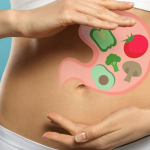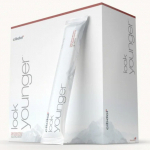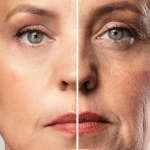Foods and drinks to avoid while taking collagen
Published:
Categories: CollagenCollagen supplements have become increasingly popular in recent years due to their many touted health and beauty benefits. Collagen is the most abundant protein in the human body and is a major component of skin, bones, tendons, muscles, hair and nails. As we age, our bodies produce less collagen naturally, leading to signs of aging like wrinkles and sagging skin. Collagen supplements can help restore collagen levels and promote youthful, healthy skin and hair.
Contents:
However, there are certain foods and drinks that can interfere with your body's ability to absorb and use supplemental collagen effectively. Being mindful of your diet while taking collagen can help you get the most out of your supplements. Here is an in-depth look at the top foods and beverages to avoid while using collagen products.

Why Avoid Certain Foods and Drinks with Collagen?
Collagen supplements are broken down into amino acids like glycine, proline and hydroxyproline during digestion. Your body then uses these amino acids to produce new collagen fibers wherever they are needed.
However, some foods and drinks contain compounds that can bind to the amino acids from collagen, preventing proper absorption. They can also increase inflammation, disrupt collagen synthesis and contribute to the breakdown of existing collagen in the body.
Avoiding collagen-blocking foods and opting for collagen-boosting alternatives will ensure you maximize the benefits from your supplements.
Top Foods to Avoid While Taking Collagen
1. High Sugar Foods and Beverages
Sugary foods like candy, desserts, sodas and fruit juices can sabotage your collagen supplementation regimen.
Research shows that excessive sugar consumption leads to the formation of advanced glycation end products (AGEs). These harmful compounds cause collagen fibers to become stiff and malformed.
AGEs also block collagen synthesis and accelerate the degradation of existing collagen. This results in accelerated skin aging and wrinkle formation.
Avoid high-sugar foods and opt for low glycemic alternatives like fruits, vegetables, whole grains and lean proteins while using collagen. Limit sugary treats to occasional small portions.
2. Refined Grains
Refined grains like white bread, pasta, rice and baked goods lack important nutrients and fiber. They also have a high glycemic index, meaning they cause rapid spikes in blood sugar.
Studies show that regular consumption of refined grains can trigger inflammation, which inhibits collagen production in the body. Inflammation also degrades existing collagen, contributing to aging skin and joint problems.
Choose whole grain options like brown rice, quinoa, oats and whole wheat bread instead. Also limit processed snacks like chips, crackers and cereals.
3. Fried and Processed Foods
Fried foods like french fries, fried chicken and doughnuts contain trans and saturated fats that drive inflammation. Chronic inflammation impedes collagen synthesis and accelerates its breakdown.
Processed meats like bacon, sausage, ham and deli meats are also very high in inflammation-causing saturated fats. Nitrates and preservatives in processed meats can also be harmful to collagen levels.
To help your supplemental collagen work effectively, avoid fried and processed foods as much as possible.
4. Excessive Alcohol
Drinking too much alcohol, especially on a regular basis, can reduce collagen production and increase its degradation through multiple pathways:
- Alcohol dehydrates the body, which reduces collagen synthesis. Collagen formation requires adequate hydration.
- It raises cortisol and blood sugar levels, which are both damaging to collagen fibers.
- Alcohol also leads to major nutrient deficiencies that are essential for collagen production, like vitamins A, C and zinc.
- Chronic alcohol use causes oxidative stress and inflammation, destroying collagen.
Limit alcohol to 1 drink per day for women and 2 for men to avoid its collagen-depleting effects.
5. Foods High in Trans Fats
Artificial trans fats are unhealthy fats found in margarine, frozen pizza, microwave popcorn, packaged baked goods and fried fast foods.
Research indicates that trans fats trigger systemic inflammation, which inhibits collagen synthesis. They also promote the formation of AGEs, which crosslink and damage collagen fibers.
Eliminate sources of artificial trans fats from your diet for collagen-friendly nutrition. Opt for foods prepared with healthy fats like olive oil instead.
6. High-Mercury Fish
Certain types of fish can accumulate high levels of mercury, a toxic heavy metal. Mercury has been shown to damage collagen proteins in human skin cells in laboratory settings.
Preliminary research also suggests that mercury exposure could reduce collagen production. However, more studies are needed to confirm mercury's effects on collagen in humans.
To be safe, avoid or limit high-mercury fish like swordfish, shark, tilefish, bigeye tuna and king mackerel. Opt for low-mercury seafood options while using collagen.
7. Excess Caffeine
Moderate caffeine intake is generally fine for your health and won't interfere with collagen supplements. However, excessive caffeine consumption can potentially disrupt your body's collagen synthesis.
Studies indicate that high caffeine intake may inhibit collagen production by increasing the release of cortisol and disrupting mineral absorption.
Stick to 400mg or less of caffeine per day, equivalent to 4 cups of coffee. You can also try partially replacing coffee with green tea, which contains EGCG to support collagen formation.
8. Carbonated Beverages
The carbonation in soda, seltzer and other fizzy drinks has been shown to damage collagen structures in human lung tissue. Although more research is needed, it's possible that carbonation could also negatively impact collagen in skin and joints.
Another reason to avoid carbonated beverages is their often high sugar content, which as discussed earlier, is quite detrimental to collagen.
For healthier bubbly options, try infusing plain sparkling water with fresh fruit and herbs.
Foods and Drinks That Support Collagen Supplements
In addition to avoiding collagen-depleting foods, make sure to regularly consume pro-collagen nutrients that support your supplements:
1. Vitamin C
Vitamin C is essential for collagen synthesis. It acts as a cofactor for enzymes that produce collagen and also helps stabilize collagen fibers.
Include vitamin C-rich foods like oranges, red peppers, kiwi, strawberries and broccoli in your diet while using collagen. Supplementing with 500–1000mg/day of vitamin C can also help.
2. Copper
Copper enables the enzyme lysyl oxidase to form crosslinks between collagen fibers, giving them strength and flexibility.
Food sources of copper include oysters, shiitake mushrooms, sesame seeds, cashews, spinach and dark chocolate.
3. Vitamin A
Vitamin A is required for the modulation and remodeling of collagen during wound healing and tissue repair.
Include vitamin A-rich foods in your diet like sweet potatoes, carrots, squash, spinach and red peppers.
4. Anthocyanins
Anthocyanins are antioxidant pigments in berries and some other fruits that inhibit collagen breakdown.
Enjoy plenty of berries, cherries, red grapes, eggplant and purple sweet potatoes to get protective anthocyanins.
5. Omega-3s
Omega-3 fatty acids from fish oil support collagen formation and may also inhibit enzymes that break down collagen.
Get more omega-3s by eating fatty fish like salmon, sardines and mackerel 2–3 times per week. You can also take fish oil supplements.
6. Silica
Silica is a mineral that assists with collagen production and slowing its degradation. Foods high in silica include leeks, green beans, garbanzo beans, strawberries and cucumber.
7. Protein
Adequate protein intake provides amino acids that are the building blocks for making collagen.
Include high-quality protein from foods like eggs, fatty fish, bone broth, nuts, seeds, beans and Greek yogurt.
8. Antioxidants
Antioxidants like carotenoids, polyphenols and selenium protect collagen fibers from oxidative damage that causes their deterioration.
Load up on colorful fruits and veggies, green tea, dark chocolate and Brazil nuts to get antioxidants.
9. Hydration
Drinking enough water supports collagen production and prevents dehydration that can degrade collagen.
Aim for at least 2-3 liters of hydration per day from water, herbal tea and fresh fruit and veggie juices.
Summary
Being mindful of your diet can really optimize the results you get from taking a collagen supplement. Avoid foods high in sugar, refined carbs, fried foods, alcohol and trans fats. These foods promote inflammation and AGEs that destroy collagen.
Instead, focus on eating plenty of clean, whole foods that provide key nutrients to enhance collagen synthesis, like vitamin C, anthocyanins, copper and omega-3s. Staying well hydrated is also key for supporting collagen production and your overall health.
Make collagen-boosting foods and beverages staples in your routine to gain the most anti-aging, joint and skin benefits from collagen supplementation possible.
With the right diet optimizations, you can expect to see noticeable improvements in skin smoothness, elasticity and hydration, joint mobility and flexibility, wound healing, hair and nail strength and other collagen-related health parameters.
Foods and drinks to avoid while taking collagen. Conclusion
Collagen supplements provide a convenient way to increase your collagen intake for better health and slowing natural aging processes. However, your diet plays a major role in how effectively your body can use and benefit from the supplemental collagen.
Certain foods and drinks promote inflammation, collagen glycation and free radical damage that destroys collagen. Avoiding these collagen-depleting foods enables your supplements to work optimally.
Consuming nutrient-dense whole foods and beverages that enhance collagen synthesis also helps. A balanced diet high in clean proteins, fruits, vegetables and anti-inflammatory fats will support your collagen supplement.
Paying attention to diet while taking collagen brings the best results. Your efforts to avoid collagen-sabotaging foods and consume more collagen-boosting nutrients will pay off in the form of improved skin, hair, nails, joints and other collagen-rich tissues.
Resources used to write this article
Danby, F. W. (2018). Nutrition and aging skin: Sugar and glycation. Clinics in Dermatology, 36(4), 409-411. https://doi.org/10.1016/j.clindermatol.2018.03.012
De Spirt, S. (2012). Anti-aging Therapy: A Prospective Hypothesis. Aging and Disease, 3(4), 414–428. https://www.ncbi.nlm.nih.gov/pmc/articles/PMC3582124/
Farage, M. A., Miller, K. W., Elsner, P., & Maibach, H. I. (2008). Intrinsic and extrinsic factors in skin ageing: a review. International Journal of Cosmetic Science, 30(2), 87–95. https://doi.org/10.1111/j.1468-2494.2007.00415.x
Ganceviciene, R., Liakou, A. I., Theodoridis, A., Makrantonaki, E., & Zouboulis, C. C. (2012). Skin anti-aging strategies. Dermato-endocrinology, 4(3), 308–319. https://doi.org/10.4161/derm.22804
Kogan, S., Sood, A., Garnick, M.S. (2020). Collagen Supplements: Science versus Hype. The Journal of Sexual Medicine, 17(1), 45-48. https://doi.org/10.1016/j.jsxm.2019.09.016
Mukherjee, P.K., Marcheselli, V.L., Serhan C.N., Bazan N.G. (2004). Neuroprotectin D1: A docosahexaenoic acid-derived docosatriene protects human retinal pigment epithelial cells from oxidative stress. PNAS, 101(22), 8491-8496. https://doi.org/10.1073/pnas.0402531101
Poon, A., Birkenhead, D., Alliston, T., et al. (2021). Effect of Diet on Bone Quality. Current Osteoporosis Reports, 1–10. https://doi.org/10.1007/s11914-021-00716-4
Shuster, S. (2011). Oxidative stress and the use of antioxidants in systemic sclerosis. Clinical Dermatology, 29(4), 387-392. https://doi.org/10.1016/j.clindermatol.2011.01.005
Tanaka, M., Koyama, Y.I., Nomura, Y. (2008). Effects of collagen peptide ingestion on UV-B-induced skin damage. Biosci Biotechnol Biochem, 72(4), 930-938. https://doi.org/10.1271/bbb.70676
Zague, V. (2008). A new view concerning the effects of collagen hydrolysate intake on skin properties. Arch Dermatol Res, 300, 479–483. https://doi.org/10.1007/s00403-008-0895-7
Sign up to our newsletter and enjoy 10% off one order
YOU MIGHT ALSO LIKE
Post related products
-

Look Younger CIBD0073


















